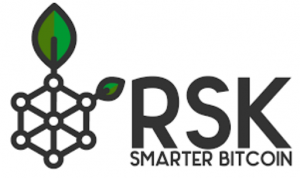RSK Labs has finally mined its genesis block and formally launched its long-awaited Bitcoin-based smart contract platform and sidechain on the mainnet. While still in beta with limited distribution, the new RSK sidechain is expected to offer significant scaling benefits to the Bitcoin network. News.Bitcoin.com caught up with CEO Diego Gutierrez Zaldivar to find out more details.
Also read: Russian Cryptocurrency Bill Is Ready – Regulators Share Details
RSK Mined Its Genesis Block
After nearly 3 years of preparation, RSK Labs has finally mined its genesis block at 1:41 am CST on January 4, 2018.

“We’re very excited to share the RSK mainnet network with the global community,” commented RSK Labs CEO Diego Gutierrez Zaldivar. “It’s a great milestone for the company after years of hard work, but this is not only ours, it’s a community success.”
The first Bitcoin-powered smart contract platform is now live on the mainnet. The source code for RSK’s first mainnet version, codenamed Bamboo, was released for peer review in early December, as news.Bitcoin.com previously reported.
Along with the mining of the genesis block, the company re-promoted on Thursday its “Bug Bounty Program to reward security experts and work with the global developer community feedback, and a full getting started guide for business partners and dapp developers.”
In an exclusive interview with news.Bitcoin.com, Zaldivar shared:
We expect a big milestone to happen four months after the beta release when the security bounty programs are concluded.
How the Platform Works
The RSK network node and wallet client is available for download on Github. The developers also offer a blockchain explorer and stats panel to observe the RSK network in real-time.
 Other wallets for RSK, including versions by Jaxx and Myetherwallet, are being worked on. Sergio Lerner, RSK Labs’ Chief Scientist, told news.Bitcoin.com in a previous interview, “we think that RSK will be integrated into most bitcoin wallets in the future.”
Other wallets for RSK, including versions by Jaxx and Myetherwallet, are being worked on. Sergio Lerner, RSK Labs’ Chief Scientist, told news.Bitcoin.com in a previous interview, “we think that RSK will be integrated into most bitcoin wallets in the future.”
Zaldivar explained that there are currently no contract limits on the amount of bitcoin transacted over the Bamboo sidechain. “The only limit imposed is to the value held in the network as a whole,” he noted, but added that “In the future, when the network value is unrestricted we might impose per contract limits and progressively raise those limits as the technology matures.” The CEO elaborated:
Initially only 21 smartbitcoins will circulate in the RSK mainnet beta (Bamboo) and they will be allocated to the first 100 companies participating on the RSK incentive program. Although the peg between Bitcoin and RSK will be fully functional, only white-listed addresses will be able to send bitcoins and get smartbitcoins in return. All funds from transactions originated on non-white listed addresses will be returned.
“We will incrementally add value at stake as the platform gets hardened until it is fully decentralized,” he emphasized.
Scaling Benefits
 RSK could add scaling benefits to the Bitcoin network, according to the developers. Lerner told news.Bitcoin.com that “RSK can outperform Bitcoin in transactions per second while still maintaining a high degree of decentralization.” The transactions are faster because “standard RSK payments are much shorter than Bitcoin payments,” he elaborated.
RSK could add scaling benefits to the Bitcoin network, according to the developers. Lerner told news.Bitcoin.com that “RSK can outperform Bitcoin in transactions per second while still maintaining a high degree of decentralization.” The transactions are faster because “standard RSK payments are much shorter than Bitcoin payments,” he elaborated.
According to Zaldivar, the speed of RSK’s sidechain allows for transactions many times faster than Bitcoin’s current rate. “RSK Bamboo will, out of the gates, support around 100 transactions per second providing significant scalability vs. Bitcoin, lowering transaction costs as a byproduct of this,” he detailed.
Lerner concurred, noting:
It will be a real boost to scaling bitcoin (the currency). However, this is not the same as scaling Bitcoin (the platform) because the security guarantees of smartbitcoins stored in RSK are different than of Bitcoin.
Eventually, the developers plan to scale RSK orders of magnitude further. “As part of RSK roadmap, parallel processing of smart contracts, full node incentives and transaction compression will provide an additional increase of up to 2,000 transactions per second,” Zaldivar explained. “Those improvements combined with Lumino off-chain technology built by the RSK team will enable processing of more than 20,000 transactions per second.”
Would you use RSK? Do you think RSK will start reducing the load on the Bitcoin network? Let us know in the comments section below.
Images courtesy of Shutterstock and RSK Labs.
Need to calculate your bitcoin holdings? Check our tools section.
The post RSK Mines Its Genesis Block – Bitcoin Now Has Ethereum-Like Smart Contract Platform appeared first on Bitcoin News.














